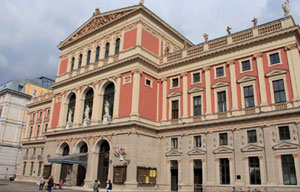Arab League hands Syria a plan
Updated: 2011-10-31 08:06
(Agencies)
|
|||||||||
AMMAN - The Arab League handed Syrian officials a plan for ending seven months of increasingly violent unrest against President Bashar al-Assad's rule, and Assad told Russian Television he would cooperate with the opposition.
"We will cooperate with all political powers, both those who had existed before the crisis, and those who arose during it. We believe interacting with these powers is extremely important," Assad said in the interview on Sunday.
The United Nations says more than 3,000 people have been killed in the Syrian government's crackdown on protesters demanding political reforms and an end to Assad's rule.
Assad blames the unrest of foreign-backed armed gangs and said in the television interview there had been "hundreds of deaths among the military, police and security forces."
The Arab League committee put its plan, involving talks in Cairo between the Syrian authorities and their opponents, to Syrian Foreign Minister Walid Moualem and Bouthaina Shaaban, a political adviser to Assad, on Sunday in Qatar.
The League had previously set a two-week deadline for the start of such talks, which expired on Sunday. The committee said it hoped for a Syrian response to its plan by Monday.
"More important than a dialogue is action... This committee has given a very strong response to the recent killings," Qatari Prime Minister Sheikh Hamad bin Jassim al-Thani, whose country presides over the committee, told reporters.
Syrian objections to holding a meeting regarding what they consider domestic affairs outside Syria was one of the points of disagreement between the two sides.
Opposition sources said 61 civilians and 30 soldiers had been killed in the latest clashes over the previous three days.
Opposition figures have repeatedly said Assad's offers of dialogue were not serious, and have said there has been a rise in recent weeks of mass arrests, torture, disappearances and assassinations of activists and street protest leaders.
"Whether we agree on the working paper or not we hope to receive an answer by Monday. If they approve the working paper, it will be implemented immediately," Thani said after the meeting, without giving details.
Intervention an "earthquake"
Assad told Britain's Sunday Telegraph that Western powers would cause an "earthquake" in the Middle East if they intervened in Syria, after protesters demanded outside protection to stop the killing of civilians.
Syria sits at the heart of the volatile Middle East, sharing borders with Israel, Lebanon, Turkey, Iraq and Jordan.
"It is the faultline, and if you play with the ground, you will cause an earthquake," he said. "Do you want to see another Afghanistan, or tens of Afghanistans?"
Mass protests have not persuaded Assad to carry out significant reforms, and Western sanctions aimed at Assad and the ruling elite have not been matched by any sign of military intervention, unlike the NATO action in Libya.
Syria, a mostly Sunni Muslim country of 20 million, is ruled by members of Assad's minority Alawite sect, an offshoot of Shi'ite Islam, who also dominate the military, key sectors of the economy and a pervasive security apparatus.
Invoking the past
In the television interview, Assad compared the unrest with the 1980s, when his father, Hafez al-Assad, crushed Islamist and leftist challenges to his rule, killing tens of thousands.
Many thousands were killed in 1982 in the city of Hama when the elder Assad's armed forces crushed a revolt by the armed wing of the Muslim Brotherhood.
Opposition figures say Islamists played no part in starting the anti-Assad uprising that erupted in March.











